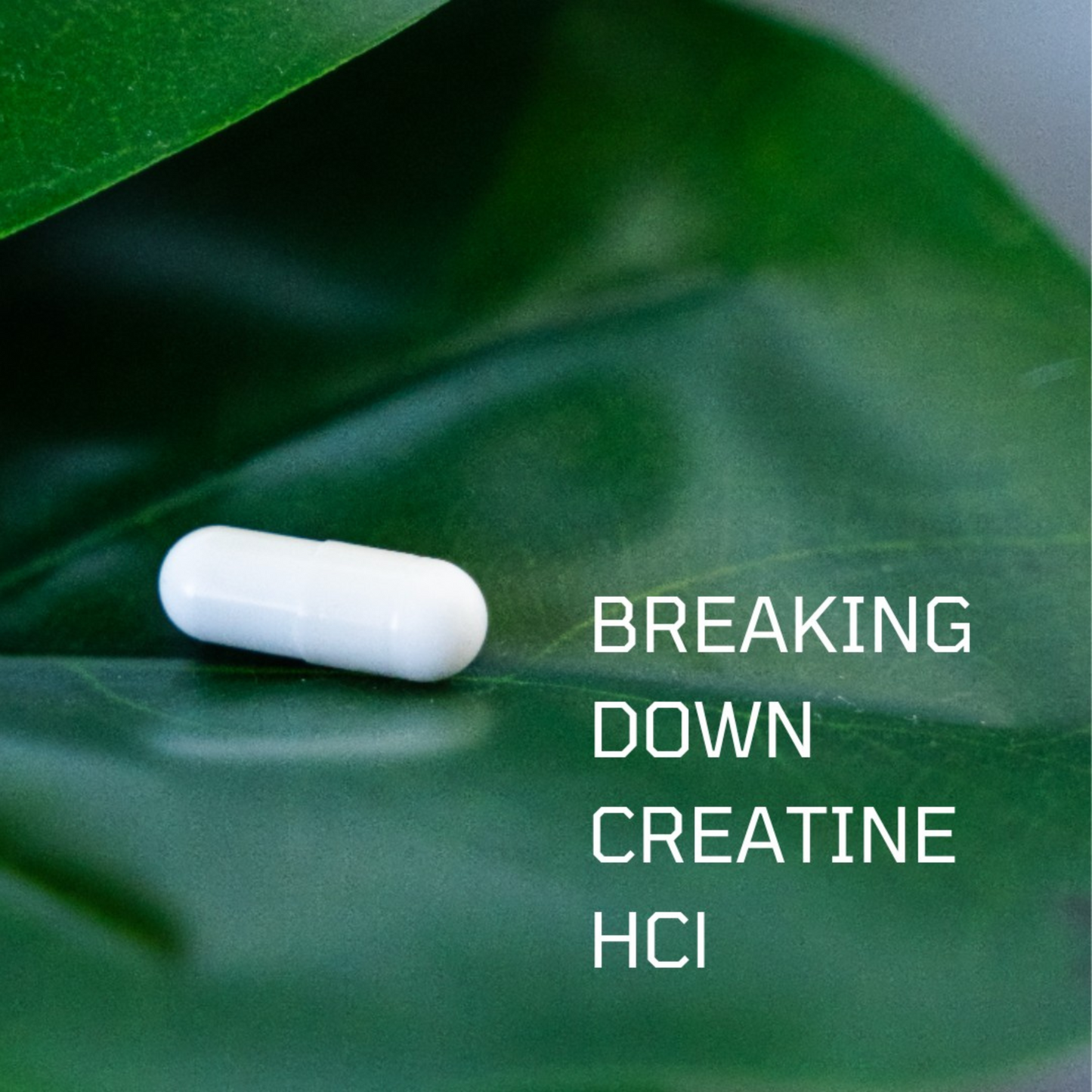
Introduction
Are you one of those individuals who hits the gym regularly, aiming to maximize gains and enhance performance? If so, you've probably heard of creatine, the superstar supplement that has been a staple in the fitness community for decades. But did you know that not all creatine supplements are created equal? In this article, we'll unveil the secrets behind Creatine HCl and discover why it's superior to its predecessor, Creatine Monohydrate.
The Science of Creatine
First things first, let's talk about creatine and its role in your body. Creatine is a naturally occurring compound found in muscle cells, where it plays a crucial role in energy production during high-intensity exercise. Creatine is naturally produces in the liver, kidneys, and pancreas, but our bodies only make about half of what we need. The rest of our creatine must come from our diets, which leads many Americans to consider creatine supplements.

When you engage in activities like weightlifting or sprinting, your muscles rely on adenosine triphosphate (ATP) for fuel. Think of ATP as your body's natural energy currency. As ATP is broken down, it releases energy that powers your muscles. However, ATP is rapidly depleted during intense workouts, leading to fatigue.
This is where creatine comes into play. Creatine helps replenish ATP stores, allowing you to maintain peak performance for longer durations. By increasing your muscles' creatine levels, you can delay fatigue, push through more reps, and ultimately, achieve better results from your training sessions.
More than A Muscle-Maker
Aside from creatine's fitness applications, it's becoming more popularized for its cognitive, immune, and general health benefits. Through its supply of ATP, creatine delivers energy to every cell in your body, not just your muscle cells. This means that many users experience noticeable brain-boosting effects such as better memory, mood, focus, and computation.

Recent research underscores how widely creatine's influence affects our general health. Studies show that creatine may have positive effects for patients with depression, TBI, Alzheimer's, Parkinson's, heart disease, and COVID. Every year it becomes more undeniable that creatine is a superstar supplement whose benefits reach far beyond gym walls.
Which Creatine is Best?
Now, let's talk about the difference between Creatine HCl and Creatine Monohydrate. While both supplements serve the same purpose, their molecular structures and properties vary significantly. Creatine Monohydrate, the traditional form of creatine, has been widely used for decades. However, it falls short with several drawbacks.
Creatine Monohydrate
One of the main issues with Creatine Monohydrate is its poor solubility in water. This means that it doesn't fully dissolve in liquid, often leading to stomach discomfort and bloating when consumed in high doses. Additionally, Creatine Monohydrate requires a loading phase to saturate your muscles with creatine, which can be inconvenient and lead to more intense gastrointestinal issues.
Creatine Monohydrate is the most studied form of creatine. However, it's an imperfect solution to a simple problem: cells not having enough energy. Creatine Monohydrate is naturally an inefficient molecule; about 85% of a 5g dose of monohydrate is wasted by the body. This leads to a myriad of negative side effects that have plagued users for decades.
Creatine Hydrochloride (HCl)
Enter Creatine HCl – the next evolution in creatine supplementation. Creatine HCl is a more advanced form of creatine that addresses the shortcomings of Creatine Monohydrate. The key difference lies in its molecular structure, which has been modified to enhance solubility and uptake into the body.

Creatine HCl is up to 59 times more soluble in water than Creatine Monohydrate, making it easier to mix and more gentle on the stomach. This increased solubility also allows for a lower effective dose, as your body can absorb and utilize the creatine more efficiently. As a result, Creatine HCl offers better bioavailability, meaning more creatine reaches your cells where it's needed most.
But the benefits of Creatine HCl don't stop there. Unlike Creatine Monohydrate, Creatine HCl does not require a loading phase. This means you can start experiencing the benefits right away, without having to endure weeks of high-dose supplementation.
Additionally, Creatine HCl is naturally acidic and mimics your body's stomach acid. Creatine HCl's lower pH makes it more easily absorbed by your stomach, thus reducing any side effects. In short, you get the same benefits of monohydrate in a 7X smaller dose without the annoying side effects.

Conclusion
In summary, Creatine HCl offers several advantages over Creatine Monohydrate. This makes it the preferred choice for fitness enthusiasts and health-conscientious consumers alike. Creatine HCl is the more soluble creatine and the more bioavailable creatine. When you add these two things with its convenient dosing, its easy to see how Creatine HCl is revolutionizing the health and wellness space.
So, whether you're a seasoned gym-goer or just starting your fitness journey, consider making the switch to Creatine HCl for enhanced performance and results. Your muscles will thank you for it.
Quality is crucial when it comes to supplements. That's why we recommend CON-CRĒT® Creatine HCl – the purest and most effective form of creatine on the market. With CON-CRĒT®, you can trust that you're getting the highest quality ingredients backed by science.
Don't waste any time - see the full-body benefits that are right around the corner waiting for you.
